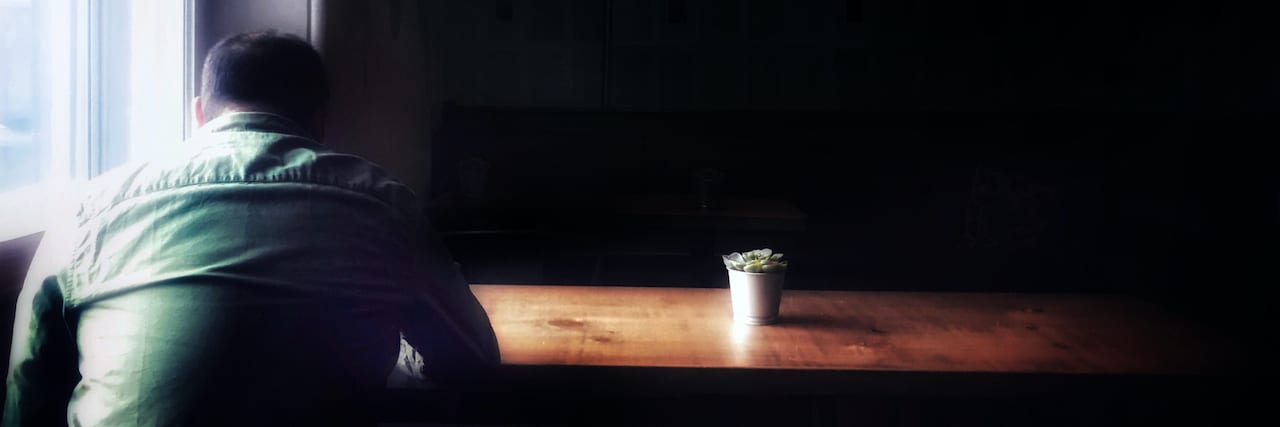The Dangerous Mental Health Effects From Being Seen as ‘Feminine’ and ‘Not Man Enough’
It’s no secret that toxic masculinity — the unspoken societal belief that men must act in a certain way to be seen as “masculine” — places pressures on men. Mighty contributors and I have written at length about the direct ways this culture of masculinity affects mental health outcomes for men — we are less likely to seek help and more likely to die by suicide. However, there is a particular idea rife in toxic masculinity that has affected me time and time again. I’m doing my best not to let it affect me any longer. That idea is that someone isn’t “man enough” based on another’s standards.
Let me share a story with you. When I was 18, I was in a bar with some male friends when someone suggested we get shots of I-can’t-remember-what; it was something strong. (I live in the United Kingdom, where the legal drinking age is 18). Either way, most of them were game; I’d already had a lot to drink, and honestly, I was a little afraid of what it would do to me. When I told them this, one of them said: “What’s the matter? You not man enough?”
“I am man enough!” I said, to be met with laughter. I rushed to the bar and ordered the same, and that laughter turned to praise for “being man enough.” The rest of that night is gone from my memory, but I know I lost my wallet — something that hasn’t happened since. Those words resonated through me for a long time after that, though. What did “man enough” mean? Was I not “manly?” Did my peers judge me and laugh at me behind my back because I wasn’t “man enough?” For a kid who had been bullied for years, being “man enough” became the spotlight upon which I cast my actions.
Being “man enough” is often wielded like a weapon against men who don’t fit the mold. Men must be fearless, strong, stoic. They mustn’t show emotions (particularly not fear); in my case, they must drink what they are told to drink when they are told to drink it. And, above all else, they mustn’t be “feminine,” because to be feminine is to be the antithesis of masculinity.
I had so-called feminine traits, sure. I had more female-identifying friends than male friends, and I still do. Now, in my mid-30s, the male friends I do have are somewhat like me — more prone to showing their softer sides and not prescribing to societal expectations. But, back then, any suggestion that I was “feminine” was a mark of bullying. Back in school in the late 90s and early 00s, “gay” and “queer” were still used as slurs and the suggestion that one could be gay was an affront to one’s heterosexual identity — to one’s masculinity. Guys would shout “bums to the wall” when a guy they called “gay” walked by, even if there was no sign that person was queer. It was an insult and nothing more.
I know better now, and society has thankfully become more conscientious of LGBTQIA+ rights (even if we still have a way to go). But being seen as “gay” — being feminine — became a trigger for me. Like my lack of “manliness,” my femininity became a point of focus for me. In my 20s, one or two people mentioned how they saw me as “camp” and I felt sick. I analyzed every action. How could I be camp? I questioned them on it but they had no specific examples which was somehow worse — it was all of me. The message was clear; I should be everything that I am not.
I’ve had a lot of years since to look back on those moments and wonder why I fell for it, but it affected me for a long time. Now, I look back on it with clearer perception, and I know it doesn’t really matter. Maybe I’m not “manly” and maybe I’m “feminine,” but gender is not binary, and while I personally identify as male, I have many friends who identify across the gender spectrum and I love them. In the end, though, it’s not really about gender; it’s about the ideas that the gender binary represents.
I’m not ashamed to show my emotions. I’m not scared to be open about my mental health, to reach out for help, and to openly cry in front of others — even if a tiny part of my trauma brain tells me that these things are wrong for men. An ex-girlfriend told me I’m “too emotional” but that’s on her; I don’t care. I’m an emotional being, a human being, and that’s OK.
But, as free as I am from the falsehoods perpetrated by toxic masculinity, many men are still locked into society’s expectation that they must be “manly” and must never be feminine, and the statistics clearly show that this is killing men.
We must stop this line of thinking. We must allow men to express themselves freely and not bully them into being “manly.” While I was lucky that I had female friends who helped me to retain my “femininity,” there are men out there who don’t. They are the ones in danger of listening when they are told they aren’t “man enough.” They are the ones who suppress their emotions, who don’t reach out for help, and who inevitably are at risk of suicide.
To the men reading this: you are “man enough” just the way you are, regardless of what society tells you. In fact, let’s just drop the gender noun from that phrase. You are enough.
Getty image by dllence

